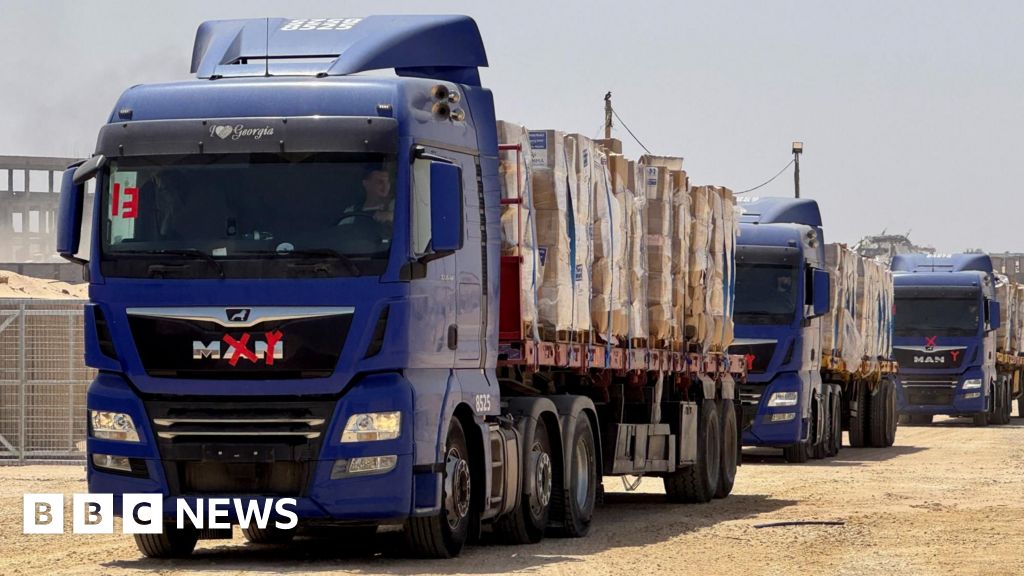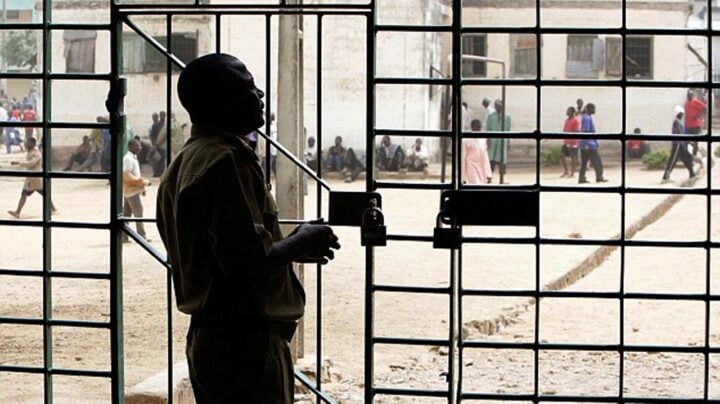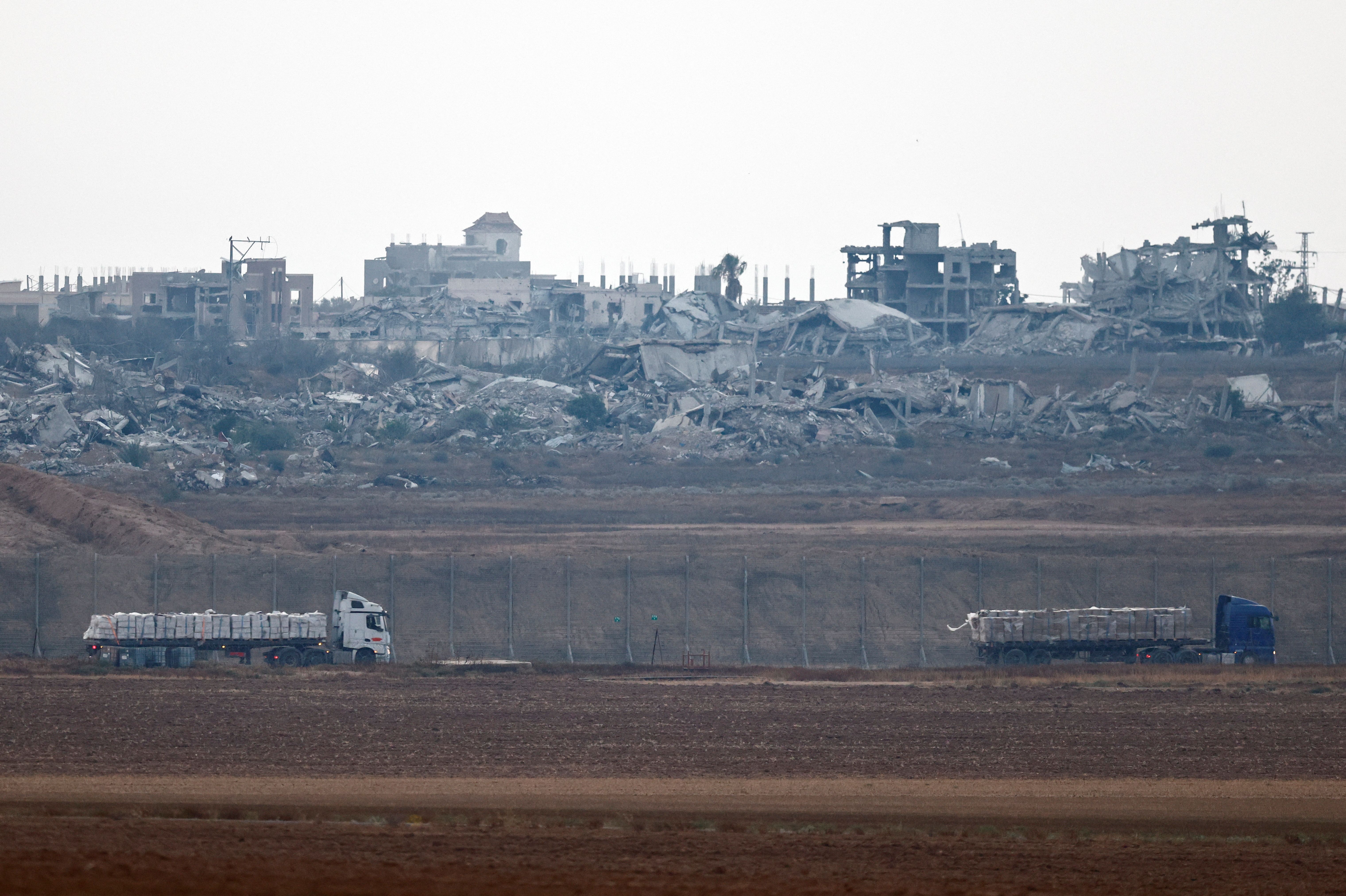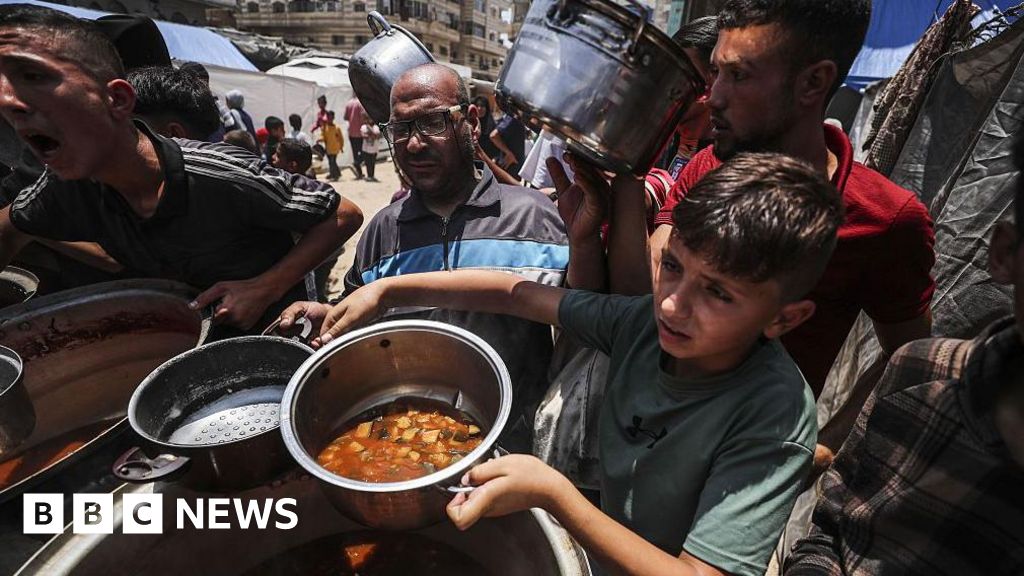US-Backed Group Starts Gaza Aid Distribution

A new, controversial aid initiative has commenced in Gaza, spearheaded by the Gaza Humanitarian Foundation (GHF), an organization backed by the United States and Israel. This development occurs amidst a severe and escalating humanitarian crisis in the region, with experts warning of an impending famine following an extended Israeli blockade and ongoing military operations. The GHF's operational strategy involves bypassing the United Nations, which has traditionally been the primary coordinator of aid to Gaza's 2.1 million residents.
The GHF reported that lorry loads of food were delivered to secure distribution sites starting Monday, with distribution to Palestinians beginning subsequently. Hundreds were seen collecting food parcels in the southern city of Rafah. According to the Israeli military, two distribution sites, one in Rafah's Tal al-Sultan neighborhood and another in the Morag Corridor, have become operational, distributing food to numerous families. The GHF's mechanism involves Palestinians collecting pre-packaged boxes of food and basic hygiene items from four designated sites in southern and central Gaza. These sites are reportedly secured by armed American security contractors, with Israeli troops patrolling the perimeters. Access to these sites was expected to involve identity checks, potentially screening for involvement with Hamas. Initial reports from recipients suggest that while queues were long, some did not directly interact with Israeli military or American personnel, with Palestinian workers managing the handout.
The GHF's initiative has been met with significant controversy and criticism from the UN and many international aid organizations. These groups have largely refused to cooperate, stating that the GHF's plans contradict fundamental humanitarian principles, appear to 'weaponize aid,' and could exclude those with mobility issues, force further displacement, and expose people to harm. Jens Laerke, a spokesman for the UN Office for the Co-ordination of Humanitarian Affairs (OCHA), termed the operation a 'distraction from what is actually needed,' reiterating the call for Israel to reopen all border crossings and ensure a secure environment for aid delivery within Gaza. Jan Egeland, secretary general of the Norwegian Refugee Council, described the GHF as 'militarised, privatised, politicised,' highlighting the involvement of ex-military and security personnel and the potential for aid to be skewed by one party to the conflict. Adding to the internal concerns, Jake Wood resigned as GHF's executive director, citing an inability for the group's system to operate in line with principles of humanity, neutrality, impartiality, and independence. However, the GHF board rejected these criticisms, asserting its system is consistent with humanitarian principles and aims to feed a million Palestinians. John Acree has been named interim executive director.
Israel maintains that an alternative to the current UN-led aid system is necessary to prevent Hamas from allegedly diverting aid, a claim Hamas denies. Hamas, in turn, has warned Palestinians against cooperating with the GHF system, labeling it a means to 'replace order with chaos, enforce a policy of engineered starvation,' and 'use food as a weapon.' The GHF has also alleged that Hamas issued death threats targeting groups supporting its operations.
Palestinian civilians have expressed mixed reactions. While some, like Fatima, a mother of five, described the aid as a 'lifeline' amid food shortages and high prices, others voiced significant fear. Concerns include the risks of crossing Israeli military lines to access aid sites and suspicions that the initiative might be part of a broader strategy of displacement. One resident from Khan Younis stated he would 'refuse to accept American aid under these terms.'
This new aid effort unfolds against a backdrop of a catastrophic humanitarian situation in Gaza. Israel imposed a total blockade on humanitarian aid on March 2 and resumed its military offensive, ending a ceasefire, with the stated aim of pressuring Hamas to release hostages. On May 19, an expanded Israeli offensive was launched, with Prime Minister Benjamin Netanyahu stating troops would 'take control of all areas' of Gaza, reportedly including plans to clear the north of civilians and forcibly displace them south. While Israel announced an easing of the blockade to allow 'basic' food amounts following US pressure, and claims over 665 aid lorries have entered, the head of the UN's World Food Programme warned this is merely a 'drop in the bucket.' An assessment by the UN-backed Integrated Food Security Phase Classification (IPC) indicates that half a million people in Gaza face starvation in the coming months. The conflict, ignited by Hamas's attack on October 7, 2023, has resulted in approximately 1,200 deaths in Israel and 251 hostages taken, while at least 54,056 people have been killed in Gaza, according to its Hamas-run health ministry.
Delivering aid in Gaza is fraught with challenges, including volatile security, border restrictions, damaged infrastructure, fuel shortages, and complex bureaucratic hurdles. Aid organizations work to mitigate these by coordinating with authorities and investing in secure logistics. The United States has historically been a significant provider of humanitarian assistance, with current efforts supported by US government funding and private donations, often in collaboration with NGOs, providing financial, technical, and logistical support aimed at empowering the Palestinian community.
Ensuring transparency and accountability in aid distribution is paramount. Mechanisms such as beneficiary registration, verification processes, monitoring and evaluation, feedback channels, and independent audits are employed by organizations to maintain trust and efficacy. Beyond immediate relief, there is a pressing need for long-term solutions to address the root causes of the crisis. Sustainable development initiatives focusing on economic empowerment, skills development, infrastructure improvements (such as water purification systems that have shown significant health benefits in case studies), healthcare strengthening, and good governance are crucial for a more resilient future for Gazans. Supporting these efforts can take various forms, including donations to reputable organizations, raising awareness, advocating for policy changes, and ethical consumerism.












